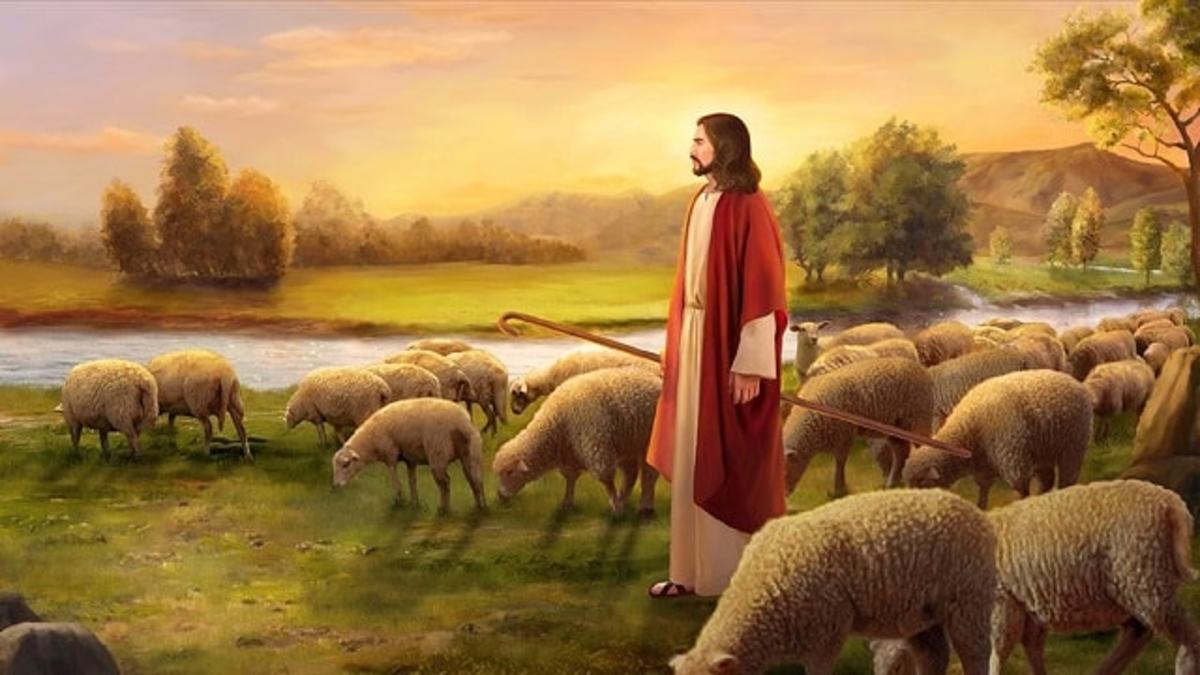The fourth Sunday of Easter is assigned to be
The Good Shepherd Sunday. In each of the
three years of the liturgical calendar we get a Gospel reading from chapter ten
of John’s Gospel where Jesus uses the extended metaphor of being a Good
Shepherd. In Year A we get the metaphor
of Jesus being the gatekeeper of the sheep pen.
In Year C we get the metaphor of sheep hearing the Shepherd’s
voice. But we are in Year B, where the
metaphor of the Good Shepherd protecting His sheep, even laying down His life
for the sheep.
Jesus said:
"I am the good shepherd.
A good shepherd lays down his life
for the sheep.
A hired man, who is not a shepherd
and whose sheep are not his own,
sees a wolf coming and leaves the
sheep and runs away,
and the wolf catches and scatters
them.
This is because he works for pay
and has no concern for the sheep.
I am the good shepherd,
and I know mine and mine know me,
just as the Father knows me and I
know the Father;
and I will lay down my life for
the sheep.
I have other sheep that do not
belong to this fold.
These also I must lead, and they
will hear my voice,
and there will be one flock, one
shepherd.
This is why the Father loves me,
because I lay down my life in
order to take it up again.
No one takes it from me, but I lay
it down on my own.
I have power to lay it down, and
power to take it up again.
This command I have received from
my Father."
~Jn 10:11-18
Again this week Bishop
Barron has the best homily that I could find on this reading, but this time it’s
with a little help from Pope Francis.
As Bishop Barron points out, the word “pastor”
is an import from Latin. From Online Etymology Dictionary:
pastor (n.)
late 14c. (mid-13c. as a surname), "shepherd, one who has care of a
flock or herd" (a sense now obsolete), also figurative, "spiritual
guide, shepherd of souls, a Christian minister or clergyman," from Old
French pastor, pastur "herdsman, shepherd" (12c.) and directly from
Latin pastor "shepherd," from pastus,
past participle of pascere "to
lead to pasture, set to grazing, cause to eat," from PIE root *pa-
"to feed; tend, guard, protect."
The spiritual sense was in Church Latin (e.g. Gregory's "Cura Pastoralis"). The verb in the Christian sense is from 1872.
That the verb use is only from 1872 is rather surprising. You would think a verb would have formed from the noun rather quickly.
Pope Francis’s three functions of a shepherd is rather interesting. In the front, in the midst, and behind the flock. I think one can see it implied by Jesus in the Gospel reading.
Sunday Meditation: "I have other sheep that do not belong to this fold. These also I must lead, and they will hear my voice, and there will be one flock, one shepherd.”
What do you think Jesus means by that?
John Michael Talbot has a number of songs with shepherd themes. I will select “I Am The Good Shepherd.”


No comments:
Post a Comment